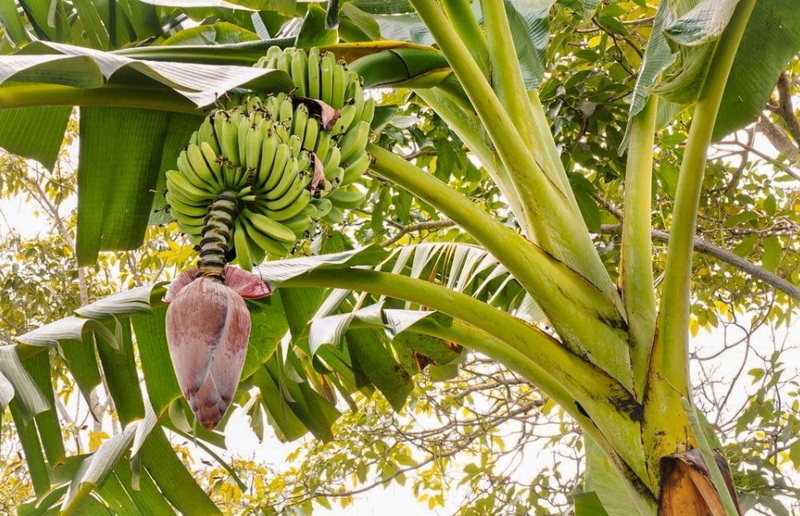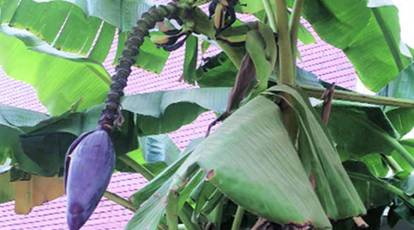Content Menu
● Introduction to Banaba Leaf Extract
● Corosolic Acid: The Main Active Compound
>> Mechanism of Action
● Other Active Compounds in Banaba Leaf Extract
>> Ellagic Acid
>> Oleanolic Acid
>> Asiatic Acid
● Benefits of Banaba Leaf Extract
● Potential Side Effects and Precautions
● Combination with Other Supplements
● Clinical Evidence and Research
● Cultural and Traditional Use
● Modern Applications
● Historical Use of Banaba Leaves
● Extraction Process of Corosolic Acid
● Future Applications in Pharmaceuticals
● Conclusion
● Frequently Asked Questions
>> 1. What is the recommended dosage of banaba leaf extract?
>> 2. Can banaba leaf extract be used by people with diabetes?
>> 3. Are there any known side effects of banaba leaf extract?
>> 4. How does banaba leaf extract compare to other natural blood sugar regulators?
>> 5. Can banaba leaf extract aid in weight loss?
● Citations:
Banaba leaf extract, derived from the plant Lagerstroemia speciosa, has been widely recognized for its potential health benefits, particularly in managing blood sugar levels and supporting overall well-being. The extract is rich in several active compounds, with corosolic acid being the most prominent. This article will delve into the active compounds found in banaba leaf extract, their functions, and the benefits they offer.

Introduction to Banaba Leaf Extract
Banaba leaf extract is obtained from the leaves of Lagerstroemia speciosa, a plant native to Southeast Asia. It has been traditionally used in folk medicine for its health benefits, including its anti-diabetic properties. The extract is standardized to contain a specific percentage of corosolic acid, which is believed to be responsible for its glucose-lowering effects.
Corosolic Acid: The Main Active Compound
Corosolic acid is a triterpenoid compound that has been extensively studied for its ability to lower blood glucose levels. It works by enhancing glucose uptake in cells, thereby reducing blood sugar levels. Studies have shown that corosolic acid can decrease blood sugar levels within 60 minutes of administration in human subjects.
Mechanism of Action
Corosolic acid's mechanism involves multiple pathways:
- Enhanced Cellular Glucose Uptake: It stimulates the uptake of glucose into cells, which helps in lowering blood glucose levels.
- Impaired Hydrolysis of Sucrose and Starches: It inhibits the breakdown of complex carbohydrates into simple sugars, reducing the amount of glucose released into the bloodstream.
- Decreased Gluconeogenesis: It reduces the production of glucose in the liver, further contributing to lowering blood glucose levels.
Other Active Compounds in Banaba Leaf Extract
Besides corosolic acid, banaba leaves contain other beneficial compounds such as ellagic acid, oleanolic acid, and asiatic acid. These compounds contribute to the extract's antioxidant, anti-inflammatory, and anti-diabetic properties.
Ellagic Acid
Ellagic acid is known for its antioxidant properties, helping protect against oxidative stress and inflammation. It also has potential anti-cancer properties, although more research is needed to confirm its efficacy in humans.
Oleanolic Acid
Oleanolic acid is structurally related to corosolic acid and exhibits similar anti-diabetic effects. It has been shown to improve insulin sensitivity and reduce blood glucose levels.
Asiatic Acid
Asiatic acid is another triterpenoid found in banaba leaves. It has been shown to enhance glucose uptake and improve insulin secretion, making it a potential anti-diabetic compound.
Benefits of Banaba Leaf Extract
The active compounds in banaba leaf extract offer several health benefits:
1. Blood Sugar Control: The extract is primarily used for its ability to lower blood glucose levels, making it a potential natural remedy for managing diabetes.
2. Antioxidant Activity: Banaba leaves are rich in antioxidants like phenols and flavonoids, which help protect against oxidative stress and inflammation.
3. Weight Management: Some studies suggest that banaba extract may aid in weight loss by enhancing fat metabolism and reducing body fat.
4. Cardiovascular Health: The extract's ability to regulate lipid metabolism and reduce inflammation may contribute to improved cardiovascular health.
5. Neuroprotective Effects: There is emerging evidence that banaba extract may have neuroprotective properties, potentially helping to prevent neurodegenerative diseases.

Potential Side Effects and Precautions
While banaba leaf extract is generally considered safe, it may interact with certain medications, such as diabetes drugs, and should be used under medical supervision. Pregnant or breastfeeding women should consult a healthcare provider before using any dietary supplements.
Combination with Other Supplements
Banaba leaf extract is often combined with other natural supplements to enhance its effects. For example, combining it with berberine or gymnema sylvestre may provide synergistic benefits in managing blood sugar levels.
Clinical Evidence and Research
Several clinical trials have demonstrated the efficacy of banaba leaf extract in lowering blood glucose levels. However, more research is needed to fully understand its long-term effects and potential interactions with other medications.
Cultural and Traditional Use
In traditional medicine, banaba leaves have been used for centuries in Southeast Asia for their health benefits. The leaves are often consumed as a tea or added to soups for their medicinal properties.
Modern Applications
Today, banaba leaf extract is used in various dietary supplements and health products. It is available in capsule, tablet, or powder form, making it easy to incorporate into a daily health regimen.
Historical Use of Banaba Leaves
Banaba leaves have been used for centuries in traditional medicine across Southeast Asia. The leaves were often consumed as a tea or used in soups to treat various ailments, including diabetes. The traditional use of banaba leaves highlights its long-standing reputation as a natural remedy for health issues.
Extraction Process of Corosolic Acid
Corosolic acid is extracted from banaba leaves through a process that involves solvent extraction followed by purification steps. The quality of the extract depends on the efficiency of this process, which ensures that the final product contains a standardized amount of corosolic acid.
Future Applications in Pharmaceuticals
Given its potential health benefits, banaba leaf extract may have future applications in the development of pharmaceuticals, particularly in the treatment of diabetes and metabolic disorders. Further research is needed to explore its full potential in this area.
Conclusion
Banaba leaf extract, with its rich content of corosolic acid and other beneficial compounds, offers promising health benefits, particularly in managing blood sugar levels and supporting overall metabolic health. However, more research is needed to fully understand its effects and potential interactions with other medications.

Frequently Asked Questions
1. What is the recommended dosage of banaba leaf extract?
The recommended dosage of banaba leaf extract varies depending on the product and individual health goals. Typically, extracts standardized to 1% to 2% corosolic acid are recommended, with dosages ranging from 50 mg to several hundred milligrams per day.
2. Can banaba leaf extract be used by people with diabetes?
Yes, banaba leaf extract may be beneficial for people with diabetes due to its glucose-lowering properties. However, it should be used under the guidance of a healthcare provider to avoid interactions with diabetes medications.
3. Are there any known side effects of banaba leaf extract?
Banaba leaf extract is generally well-tolerated, but it may cause gastrointestinal upset in some individuals. It is important to monitor blood sugar levels when using this extract, especially if you are taking diabetes medications.
4. How does banaba leaf extract compare to other natural blood sugar regulators?
Banaba leaf extract is often compared to other natural compounds like berberine and gymnema sylvestre for its ability to regulate blood sugar. Each has its unique benefits and mechanisms of action, and they may be used together for enhanced effects.
5. Can banaba leaf extract aid in weight loss?
Some studies suggest that banaba extract may help with weight management by enhancing fat metabolism. However, more research is needed to confirm its efficacy as a weight loss aid.
Citations:
[1] https://www.hsnstore.eu/brands/essential-series/banaba-extract-10-1-500mg
[2] https://research.lpubatangas.edu.ph/wp-content/uploads/2019/06/Steth-2014-001.pdf
[3] https://huggingface.co/openbmb/VisCPM-Chat/raw/main/vocab.txt
[4] http://www.bioactives.co.jp/english/nutritional-ingredients/productdetail/7/banaba-extract
[5] https://pubmed.ncbi.nlm.nih.gov/22095937/
[6] https://pmc.ncbi.nlm.nih.gov/articles/PMC3468018/
[7] https://www.jstage.jst.go.jp/article/jnsv1973/45/6/45_6_791/_article
[8] https://pubmed.ncbi.nlm.nih.gov/39338524/
[9] https://www.healthline.com/nutrition/banaba-leaf

 English
English 




























